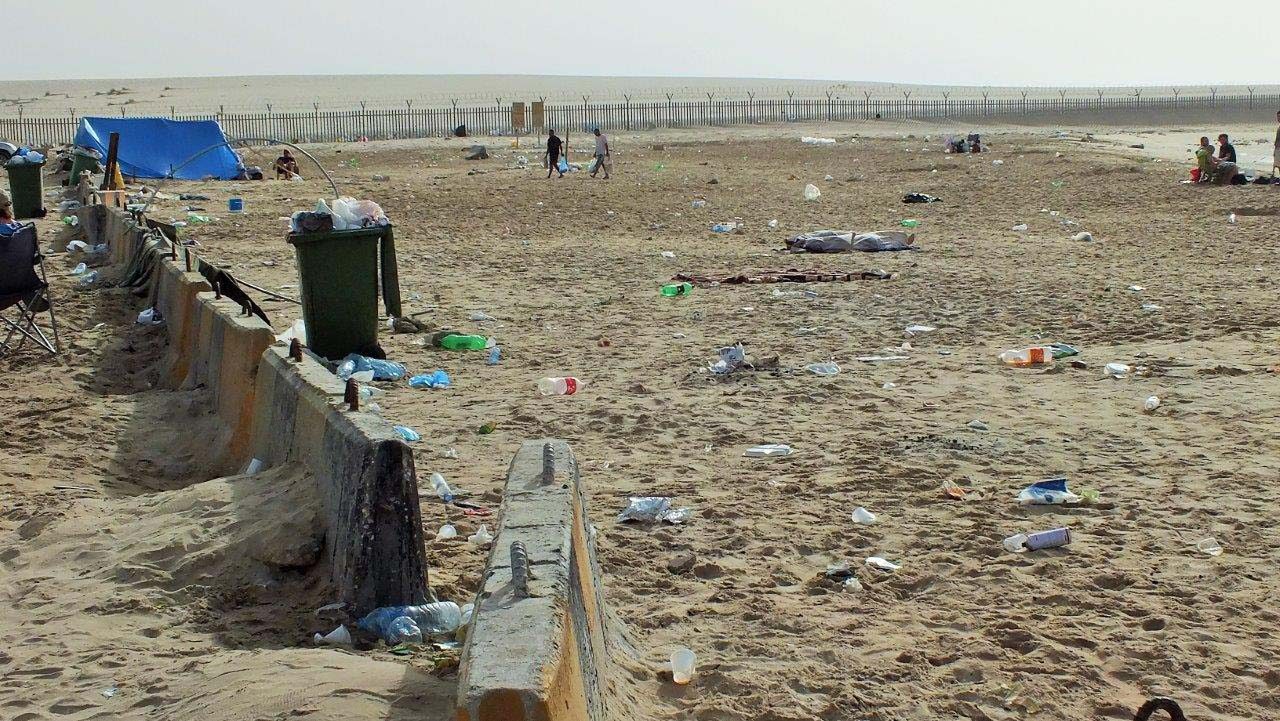
As part of an ongoing campaign to clean up Qatar’s coastline, the Ministry of Municipality and Urban Planning (MMUP/Baladiya) is asking volunteers to give up an hour or two of their weekend to take do some litter-picking.
A 50km stretch of beaches and shore in the Al Arish district in northwest Qatar is the focus of the two-month-long beach clean campaign #AsamkuAlalQuwwa, which is being led by the ministry’s department of beaches and islands.
All volunteers, whether organized groups or individuals, are welcome to help bolster these efforts by taking part in the initiative, which will be open to public volunteers on Fridays and Saturdays, a ministry representative told Doha News.

Last year, 300 volunteers took part in a similar initiative, and the hope is that more people sign up this year.
Trash bags and gloves will be provided, as well as free water and lunch for volunteers.
All prospective volunteers are requested to pre-register at least two days before the weekend on which they would like to take part.
For further details and to register, residents should call 4441 3416, or 5552 9933, or 5522 8057.
Public campaign
The MMUP is one of a number of government bodies responsible for protecting Qatar’s natural habitat and ensuring the cleanliness of public areas in the country.

Last year, it launched its campaign “We all see you, you’re not alone” as a three-year initiative to improve public awareness of a number of issues including littering, dumping waste and spitting in public.
Yellow posters bearing the slogan in Arabic and English can be seen around town, in an attempt to encourage a spirit of civic responsibility.
It is illegal to litter Qatar’s public spaces. Leaving food waste on beaches can attract a QR100 fine, while residents caught throwing out bags of trash on to beaches face fines of QR500.
However, enforcement remains an issue, and the message of “take only photos, leave only footprints” when visiting beaches is often not heeded.
Beach effect
Particularly during weekends in the cooler months, beach-goers regularly report piles of trash, broken bottles and barbecues left behind on the sand.
Grass roots organizations such as the Doha Beach Clean Project regularly organize their own litter-picking events, and some public and private companies have similar drives for their employees.

In May last year, around 400 residents took part in a clean-up of the ecologically important Al Thakira mangroves near Al Khor.
Led by ILoveQatar.net, in conjunction with some dozen other companies, the volunteers filled two trucks full of trash and items for recycling.
While littering has aesthetic issues, it can also cause serious environmental problems.
One of Qatar’s most popular beaches, Fuwairit, is also an important breeding ground for Hawskbill turtles.

However human impact, including strewn rubbish, can disorient them as they desperately search to lay their eggs in the same nesting area where they hatched.
Last summer, Neil McBride, a British expat who is involved with Qatar Marinewatch and Qatar Turtlewatch, urged residents to take more care when they go to the beach.
In an opinion piece for Doha News, he wrote: “A turtle, swimming gracefully in the sea, can easily mistake a plastic bag for a jellyfish (one of its primary food sources). If that doesn’t make you think, how many of you catch fish or crabs and take them home to eat later?”
Thoughts?







